A month ago I went on a short, three-day jaunt to meet up with friends in New York City. I took the train from Boston and back because a single ticket on Acela runs about $62 each way. I enjoy looking out the window while cutting through the urban, highly populated northeastern America in winter. The sparse patches of evergreen along the landscape are striking, like emeralds embroidered into the gray canvas of a modern world. I find the sound of the train soothing, and it’s easy to get a lot of reading done. During the trip I kept pace with
who has been doing a week-by-week close reading of Seamus Heaney’s Beowulf.I can’t get enough of
, (and it’s version for younger audiences ), , , , , and the many other Substacks that cater to autodidacts like me (please comment if you have any other additions to this list). Each space not only offers insight into subjects that contribute to human flourishing but also provide community via Comments, Notes, and Chats.This love of learning is also what brought me to New York in January. I was getting together with my tutor and classmates I met through the Catherine Project, a program that offers FREE Zoom courses that guide learners in an education of the Great Books. As described by the project’s founder, Zena Hitz:
I founded the Catherine Project in the summer of 2020, when we were all in between long lockdowns, and when online learning seemed here to stay. The Catherine Project provides online person-to-person education at a high level for anyone who is motivated and interested. Our courses are based on the Great Books and the traditions in which they find a home. A Great Book, unlike a YouTube video or a pre-digested and spoon-fed lecture course, trains readers to think for themselves. The online communities we build put interested readers in touch with the senseis, maestros, guides, and mentors they need to make their way in pursuing the great human questions.
Hitz’s vision is an “education without strings attached, no grades, no credits, no tuition, run on the manifest love of learning alone.” If this is the case, she succeeded with me and my Homeric epics class. Our group discussions were lively and enriching, and we bonded so well we decided to reunite for The Odyssey this year and Virgil’s The Aeneid next year.
What is even better, due to our geographic locations, some of us are able to do a yearly field trip to Metropolitan Museum of Art to look at classical art and discuss our various interests, experiences, and vocations.
This year my hotel was walking distance from the museum, a path that took me right past The Strand bookstore’s sidewalk sale. Guess which book I got for my children…
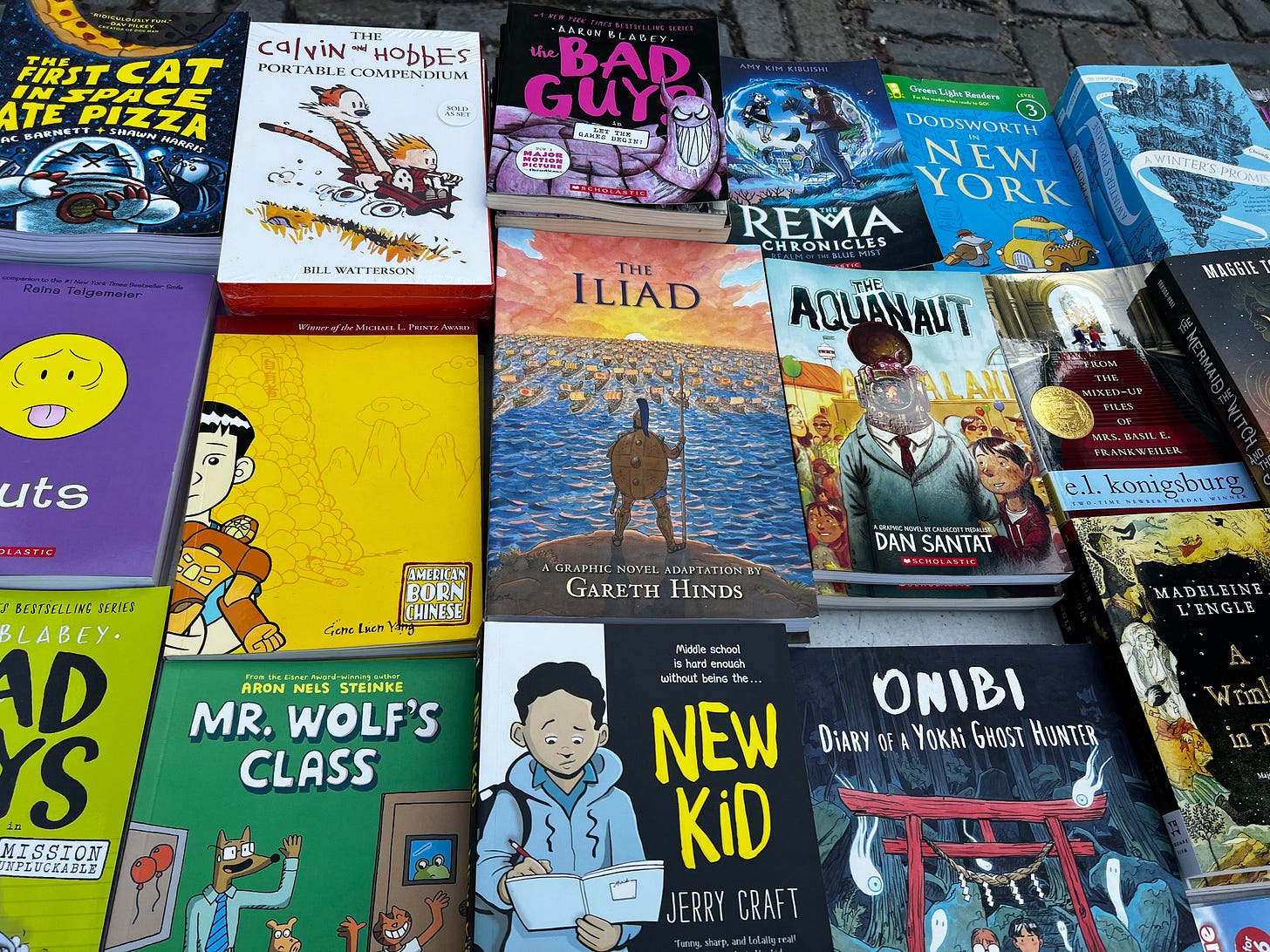
Here are a few photos that show off my selfie arm…
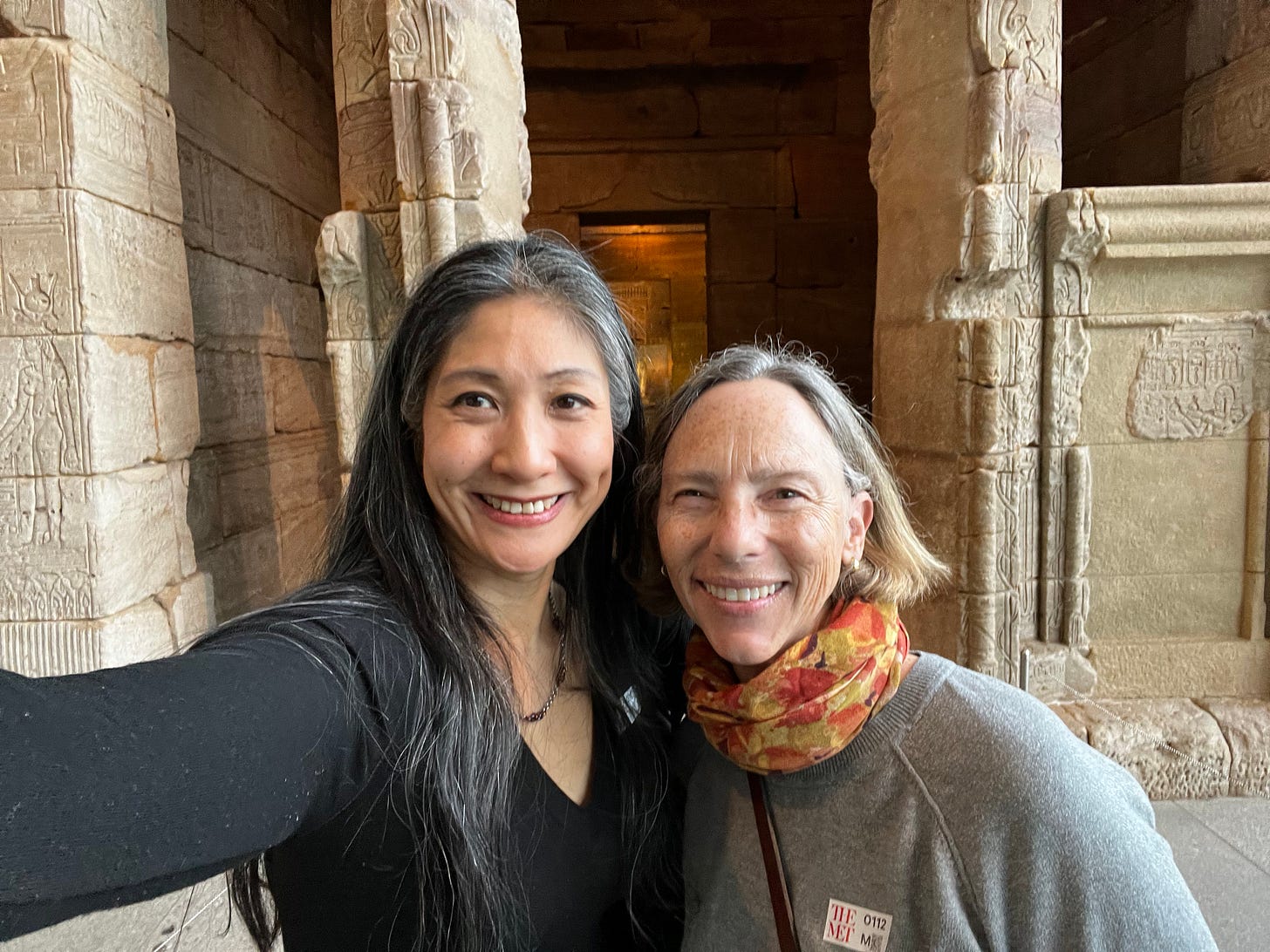
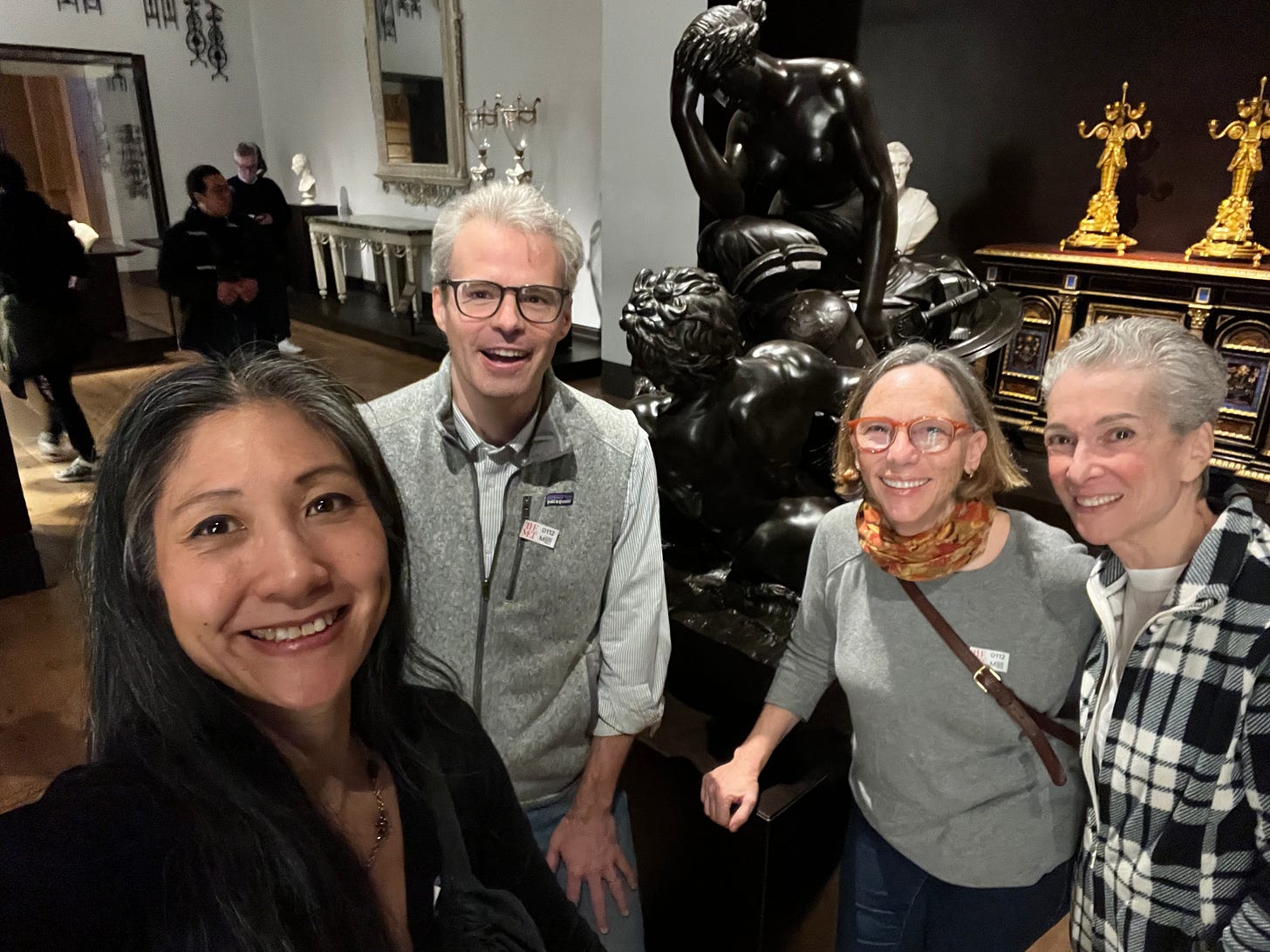
We wanted to see two works in particular: Thetis Transporting Arms for Achilles and the Shield Depicting the Siege of Troy. The shield that Thetis is riding on in the statue is actually not decorated, a striking difference from the depiction in the epic poem. Here is detailed background information on the statue by William Theed the Elder.
The shield above shows Hector and Achilles on the left and the kidnapping of Helen on the right. Charlie, Rosemary, Lucas and I spent a great deal of time looking at the details portraying the scenes of Trojan War, as opposed to a recreating the shield as described in the epic. For reference the drawing below is an interpretation of the shield as written by Homer.
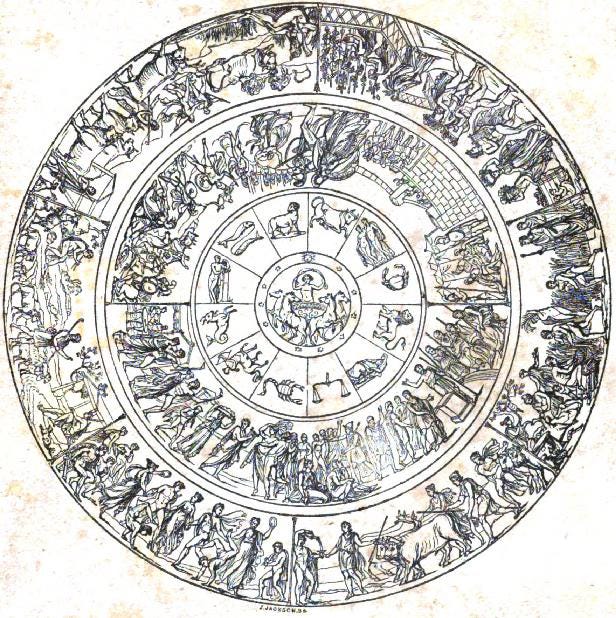
In the hall of armor I was able to recite a good portion of W. H. Auden’s The Shield of Achilles to my friends, which tells the story of Hephaestus hammering out the horrors of war onto the shield while a despairing Thetis watches on. It ends like this:
A ragged urchin, aimless and alone,
Loitered about that vacancy; a bird
Flew up to safety from his well-aimed stone:
That girls are raped, that two boys knife a third,
Were axioms to him, who'd never heard
Of any world where promises were kept,
Or one could weep because another wept.The thin-lipped armorer,
Hephaestos, hobbled away,
Thetis of the shining breasts
Cried out in dismay
At what the god had wrought
To please her son, the strong
Iron-hearted man-slaying Achilles
Who would not live long.
Perhaps not the most cheerful thing to have lodged in one’s memory, but it still seemed incredibly relevant to the what we had been studying.
As wonderful as books are, it is not really a replacement for fellowship. This was all an experience of philia, or φιλία, the love of friends. As Aristotle would say, "no one would choose to live without friends even if he had all the other goods" [1155a5–6].
As we approach Valentine’s Day I hope you experience this fellowship, this φιλία. Perhaps you may do this through sharing or seeking knowledge together. Or perhaps you may do this just by appreciating that the other exists.
I love and appreciate you all. Thank you for reading!

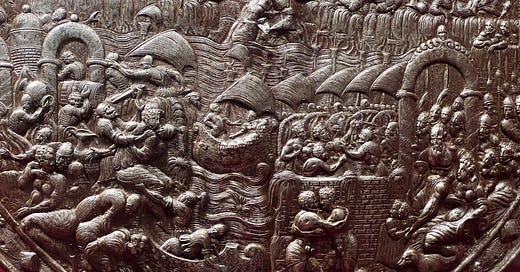



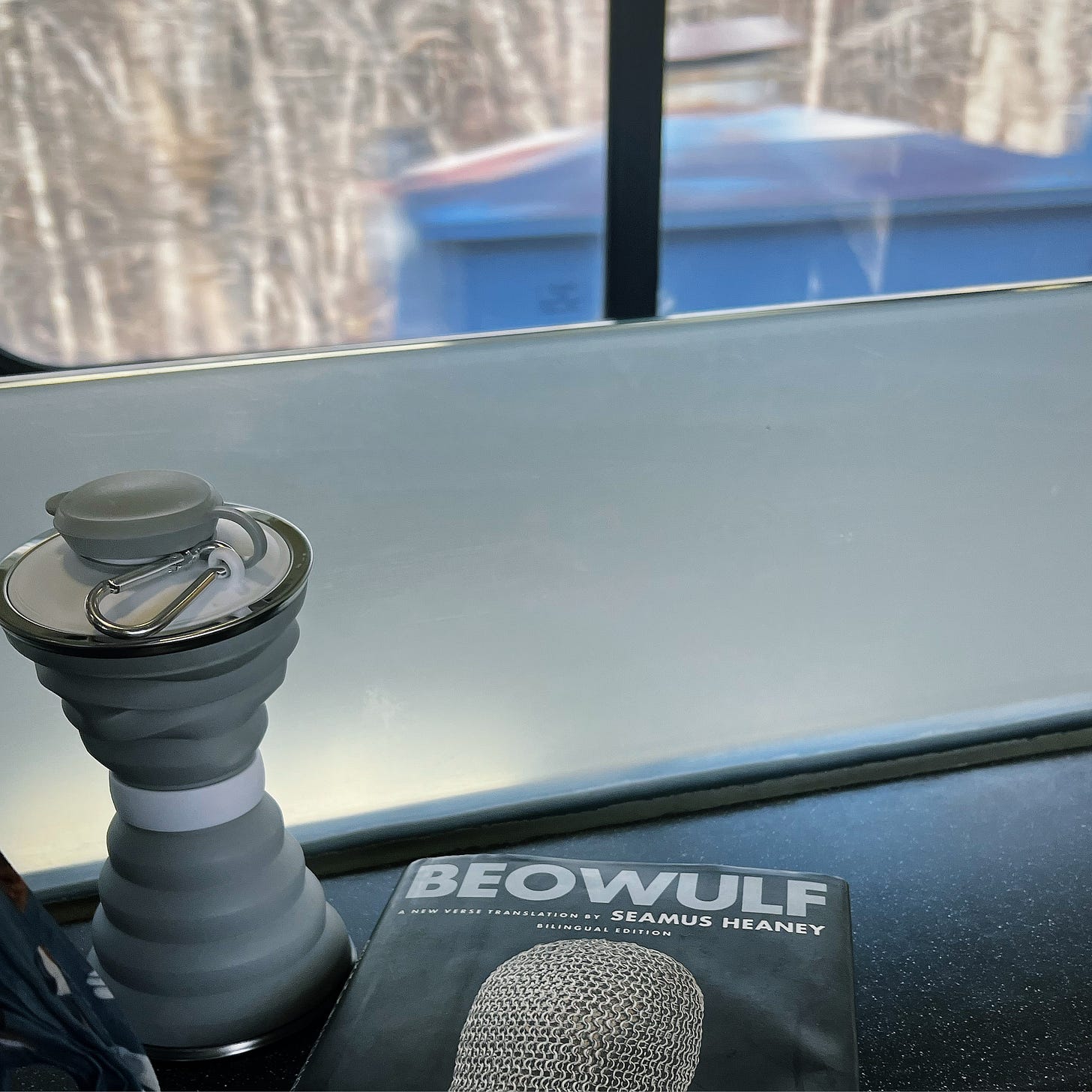

What a fantastic opportunity to gather together. I am reading The Iliad and The Odyssey later this year in preparation for tackling Ulysses.
Warms my heart to see book lovers together.
And the Auden is so powerful and haunting.
I may have to memorize at least these four brutal lines:
That girls are raped, that two boys knife a third,
Were axioms to him, who'd never heard
Of any world where promises were kept,
Or one could weep because another wept.